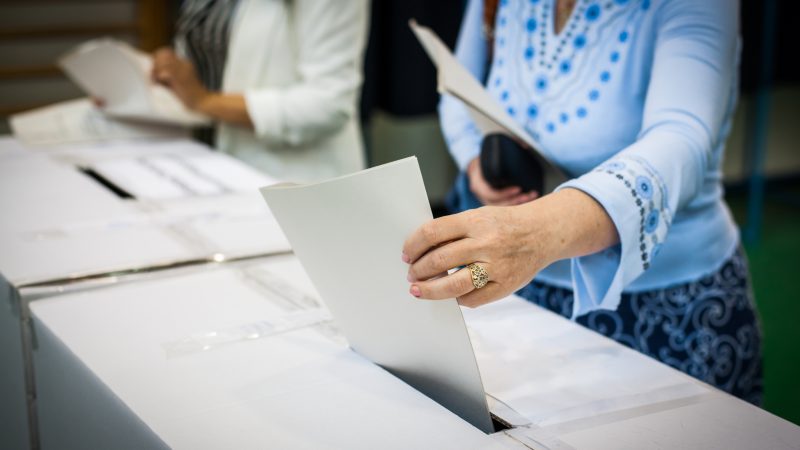
There was surprise amongst some Westminster watchers yesterday as the House of Commons voted to replace First Past the Post (FPTP) with Proportional Representation (PR) for the first time in history. A symbolic ‘Ten Minute Rule’ motion, put forward by Liberal Democrat MP Sarah Olney, was narrowly passed with the support of 138 MPs, including 59 Labour MPs.
For those who follow this issue, however, the surprise wasn’t quite so great. Support for electoral reform amongst the Labour movement has surged in recent years, leading to the overwhelming endorsement of PR by annual conference in 2022, and the adoption in 2023 of party policy recognising that FPTP is both flawed and damaging to trust in politics.
Labour’s candidates at the last election largely share this consensus view – and Labour’s historic parliamentary majority has translated this into the most pro-PR intake of MPs the party has ever seen. Just days ago the All Party Parliamentary Group for Fair Elections announced that it was already one of the biggest such groups in Parliament, with 110 members most of whom are Labour MPs. Seen against this backdrop, the outcome of this week’s Commons vote seems a little less of a shock.
READ MORE: ‘Labour admits first past the post is flawed and GE24 proves it. We need PR’
‘Politics is failing to reflect people’s views and their votes’
It is the public, not only the Labour movement, that Parliament is catching up with. Analysis by the APPG for Fair Elections, published last week, found that there is now record and majority public support for changing to a proportional voting system. Importantly, given the Prime Minister’s commitment to restoring trust in politics, support for PR is the highest amongst those who trust politics the least. Two-thirds of the public want “the flaws in the voting system” (as Labour policy puts it) addressed before the next general election, according to new polling.
Support will only continue to rise in the wake of the most distorted general election result in British history. Labour won a landslide majority on just a third of the vote, while only around four in ten voters got the MP they wanted. The vast majority saw neither the party they backed in government, nor the candidate they voted for as their local representative. People can see the system at the heart of our politics is completely failing to reflect their views and votes.
So it’s welcome that Parliament has demonstrated that the gap between the public and politicians on electoral reform is closing. Nonetheless, the fact that it came about the way it did is a reflection of the government’s failure to grasp the democratic renewal nettle. Yesterday’s vote was a symbolic victory for fair votes, but it is far from the ideal way forward.
For more from LabourList, follow us on Bluesky, Threads, X,Facebook, Instagram or WhatsApp.
‘Too important a challenge for the government not to lead the way’
Leaving this to an opposition party’s Ten Minute Rule motion meant support for PR amongst the Parliamentary Labour Party was substantially understated in yesterday’s division. No frontbenchers, including Parliamentary Private Secretaries, were allowed to vote – when we know that support spans the government benches: a now senior Cabinet minister sought to introduce PR with a Ten Minute Rule of his own not so long ago!
Some backbenchers who have publicly stated their support for electoral reform voted against the motion, and many more will have abstained, because they didn’t want to be seen to support a Lib Dem bill, or – rather more understandably – because a motion of this kind necessarily skirts around important questions that need to be answered before PR can be implemented. These questions are hinted at in Labour’s party programme document, which says that “Any proposed change to our voting system must be carefully thought through – it cannot be dictated by political leaders or forced upon the country from the top down”.
This is exactly why the government should now follow the recommendation of the APPG for Fair Elections by establishing a National Commission for Electoral Reform in the new year, tasked with recommending a fair and democratic voting system in which every vote counts. Such a Commission would be a great opportunity to begin restoring trust in our political system – by putting citizens, alongside experts, at the heart of this important decision about the future of British democracy.
The Prime Minister himself has declared that “the fight for trust is the battle that defines our age”, and the government itself has identified that the flaws in First Past the Post are driving distrust and alienation in our politics. This is too important a challenge for the government not to lead the way. It should take the first step, by establishing a National Commission for Electoral Reform, and prove that it is serious about restoring trust in politics.
SIGN UP: Get the best daily roundup and analysis of Labour news and comment in our newsletter
- SHARE: If you have anything to share that we should be looking into or publishing about this story – or any other topic involving Labour– contact us (strictly anonymously if you wish) at [email protected].
- SUBSCRIBE: Sign up to LabourList’s morning email here for the best briefing on everything Labour, every weekday morning.
- DONATE: If you value our work, please donate to become one of our supporters here and help sustain and expand our coverage.
- PARTNER: If you or your organisation might be interested in partnering with us on sponsored events or content, email [email protected].




More from LabourList
‘Factionalism at the top is weakening Labour – and handing a gift to Reform’
‘Europe must stand strong on its own as US security guarantees grow conditional’
‘Tackling poverty should be the legacy of Keir Starmer’s government’